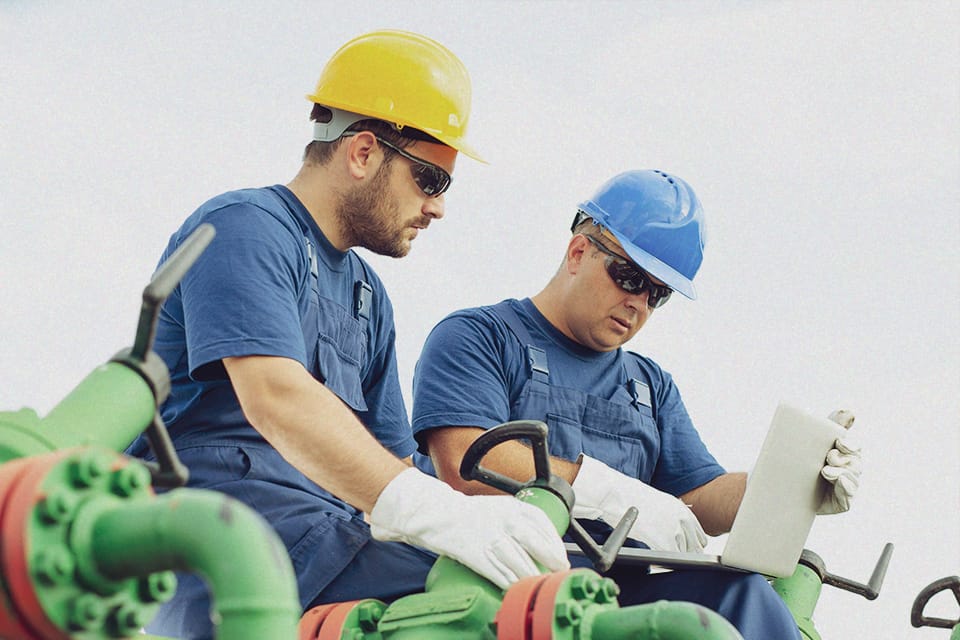
Sustainable Transportation in Midstream Operations

Sustainable transportation in midstream operations significantly reduces environmental impact and increases oil and gas industry efficiency. Several different trends are shaping the industry, all aimed at ensuring the safe transportation of oil and gas to end-users.
Midstream companies are entrusted with safely storing oil and gas as it is transported. They play a significant role in maintaining sustainable transportation. This article dives into popular trends and critical aspects of sustainable transportation, specifically in midstream operations.
Critical Aspects of Sustainable Transportation in Midstream Operations
Transition to Renewable Energy Sources
As the demand for fossil fuels decreases, midstream companies are looking to implement additional renewable energy resources to diversify their services. These changes can involve:
- Repurposing existing pipelines for biofuels or hydrogen.
- Your company is committing to sustainability and inclusion towards renewable energy infrastructure.
- Transition to electric equipment.
- Switching to electric vehicles for shorter distances can minimize greenhouse gas emissions.
Optimizing Transportation Routes
Route optimization software reduces fuel consumption and improves overall efficiency during longer transports of oil and gas. Implementing data analytics can also optimize transportation routes and reduce fuel consumption. Analyzing data such as patterns, trends, and specific conditions can allow companies to discover the most efficient, sustainable transportation routes.
Other sustainable transportation advances through data analysis include:
- Infrastructure Optimization
- Further reduce emissions and costs by strategically locating facilities and other transportation networks.
- Supply Chain Management
- Efficient management of inventory.
- Streamlined transportation planning.
Internet of Things (IoT) and Pipeline Safety
One of the most significant threats to oil and gas sustainable transportation in midstream operations is pipeline leakage. Damage from pipeline leaks can lead to severe environmental damage. However, IoT sensor systems assist in monitoring and detecting leakage or further damage to pipelines using predictive maintenance.
IoT sensor solutions refer to a network of physical devices and software that can collect and share data simultaneously. Additional features include:
– Monitor pipeline pressures
– Energy usage
– Cost details
Implementing IoT sensors to monitor pipelines eliminates the need for in-person pipeline checks, thereby providing sustainable pipeline transportation while significantly reducing risk to worker health and safety in the field.
Effective Data Management
Sustainable transportation in midstream operations requires a spectrum of actions and supplies dedicated to maintaining the constant flow of oil and gas. The specifics that accompany processing and transporting the product to meet the specifications of downstream markets can be challenging to maintain while choosing sustainable operation tactics.
Core benefits of effective data management in sustainable transportation:
- Compliance Assurance:
- Regulations can change quickly and do so constantly. Effective data management ensures that midstream companies comply with all industry regulations while exploring more sustainable options.
- Decision Making:
- Timely data is crucial when transporting oil and gas. In an industry where decisions may need to be made quickly, not having the proper data can lead to compliance issues and safety concerns. An efficient data management system assists in compiling important insights when decisions such as these are in demand, keeping workers safe.
- Risk Mitigation:
- Effective data management protects against potential risks during transport. Identifying issues before action allows midstream companies to implement the necessary preventative measures.
- Data management can also help to reduce emissions in long-distance transportation by screening for safety concerns in vehicles and amongst workers’ individual qualifications, preventing potential delays or risk of accidents.
Circular Economy Initiatives
Aiming to promote a circular economy within transportation in midstream operations reduces a company’s carbon footprint and optimizes its internal resource use. Dependency on nonrenewable energy sources leads to increased climate change and a waste of usable inventory, affecting budgets and raising carbon emissions.
Governments worldwide are beginning to implement measures to encourage businesses to adopt a circular economy. These measures include incentives for sustainable product design and maintenance that favor using recycled materials.
Critical aspects of implementing and maintaining a circular economy:
- Implementing strategies to extend the lifespan of transportation materials like pipelines and vehicles encourages the promotion of durable and repairable materials.
How Implementing These Critical Aspects Can Improve Your Company
Sustainable transportation in midstream operations has the potential to significantly improve a company’s carbon emissions, supply chain tactics, and compliance. These aspects help ensure more environmentally conscious oil and gas transportation while improving safety regulations and worker safety.
These strategies require a workforce that can handle a dynamic midstream landscape. Companies are encouraged to ensure the right partnership is in place to guarantee positive, safe changes with practical training from industry experts. Consider Veriforce to assist you in implementing changes that strive towards sustainable transportation within your midstream operations organization. Tailor your training on and off-site and find sustainable solutions that meet your company’s unique needs.
Contact us today to learn more.




